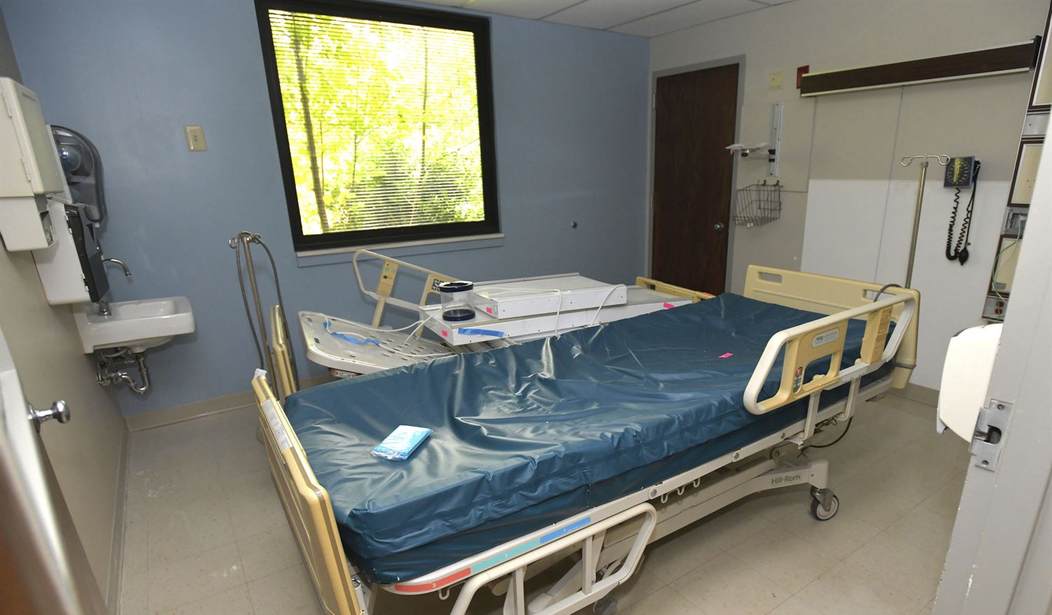Certificate of Need (CON) laws have hindered access to affordable health care in Alaska since their inception. These outdated regulations wreak havoc on the health care marketplace by restricting competition and hindering technological innovations.
COVID-19 pointed out the major flaws of CON. Because of the lengthy and costly process to apply for CON within many states, these laws were suspended to allow the medical marketplace to react to the needs of patients during the crisis, including increasing hospital capacity. Alaska is one of 24 states that temporarily suspended certificate of need laws during the COVID-19 pandemic.
Earlier this year, efforts were made in the Alaska Legislature to permanently remove CON barriers. SB 26 would have repealed Alaska’s CON laws, resulting in an estimated savings of $232,000 per year. Similarly, according to the Kaiser Family Foundation, health care costs are 11 percent higher in states operating with CON laws than those without. States requiring certificates of need for 10 or more services averaged per-capita health care costs that are 8 percent higher than the $6,837 average for states requiring certificates of need for fewer than 10 services.
To make matters worse, Alaska has some of the highest health care costs in the country. Spending on hospitals and on physician and clinical services are 50 to 80 percent higher than national averages according to a recent report by the Alaska Policy Forum. Medicaid expenditures are 56 percent higher than the national average.
CON laws also harm health care outcomes. A study by Thomas Stratman and David Wille of the Mercatus Center at George Mason University analyzed the effect of CON laws on specific metrics for nine quality indicators at 921 hospitals. The study reviewed data from 2011 to 2015 and found health care quality measures were significantly lower in CON states compared to states without CON laws. One of the biggest discrepancies identified in the study is the difference in the rate of mortality resulting from complications in hospitals. In CON states, the mortality rate was about 5.5 percent higher than the average rate in non-CON states.
For years, Alaska’s CON laws have allowed existing hospitals to block the expansion of would-be competitors, skewing the system in their favor. If Alaska did not have CON laws on the books, the state would have at least 10 additional health care facilities, three ambulatory surgical centers, and seven rural hospitals, according to a Mercatus profile on Alaska’s CON laws.
CON laws are the epitome of crony capitalism and limit innovation. They allow and breed monopolistic practices that do nothing but line industry leaders’ pockets and create barriers to access for patients. Alaska state legislators need to ask themselves who they are representing: Is it health care industry leaders, or the constituents in their jurisdiction? It would appear with their voting record of not reforming or repealing CON over the last three legislative cycles that patient-centered care is not a priority.
Rural communities are significantly suffering under CON regimes. Rural states operating with CON have 13 percent fewer hospitals per capita than rural states operating without CON laws. In addition, rural communities in states with CON laws have higher levels of Medicare spending per beneficiary, ambulance utilization, and emergency room use.
Alaska missed the mark on CON repeal this legislative session and legislators should strongly look at the economic implications and, more importantly, patients’ lives when discussing CON. These laws directly undermine patient freedom, drive up costs, and limit competition.
CON laws breed cronyism and lend favor to established industry leaders. There is no truly free market with so much government intervention, but repealing CON would be a first step to opening up the marketplace. If a full repeal of CON laws cannot be accomplished, the next best thing would be reforming these laws to make them less burdensome, thus improving the lives of all Alaskans.
Christina Herrin ([email protected]) is a government relations manager at The Heartland Institute, a nonpartisan, free-market think tank headquartered in Arlington Heights, Illinois.













Join the conversation as a VIP Member